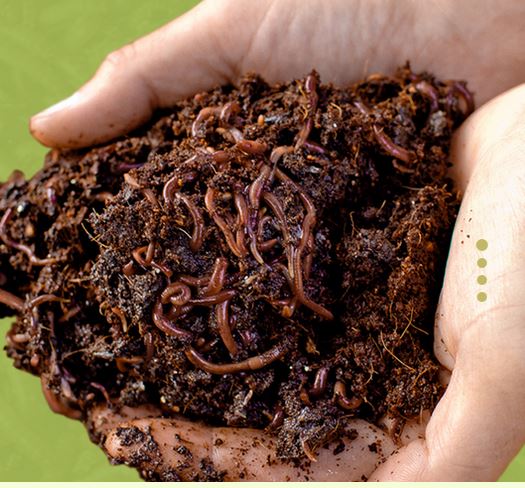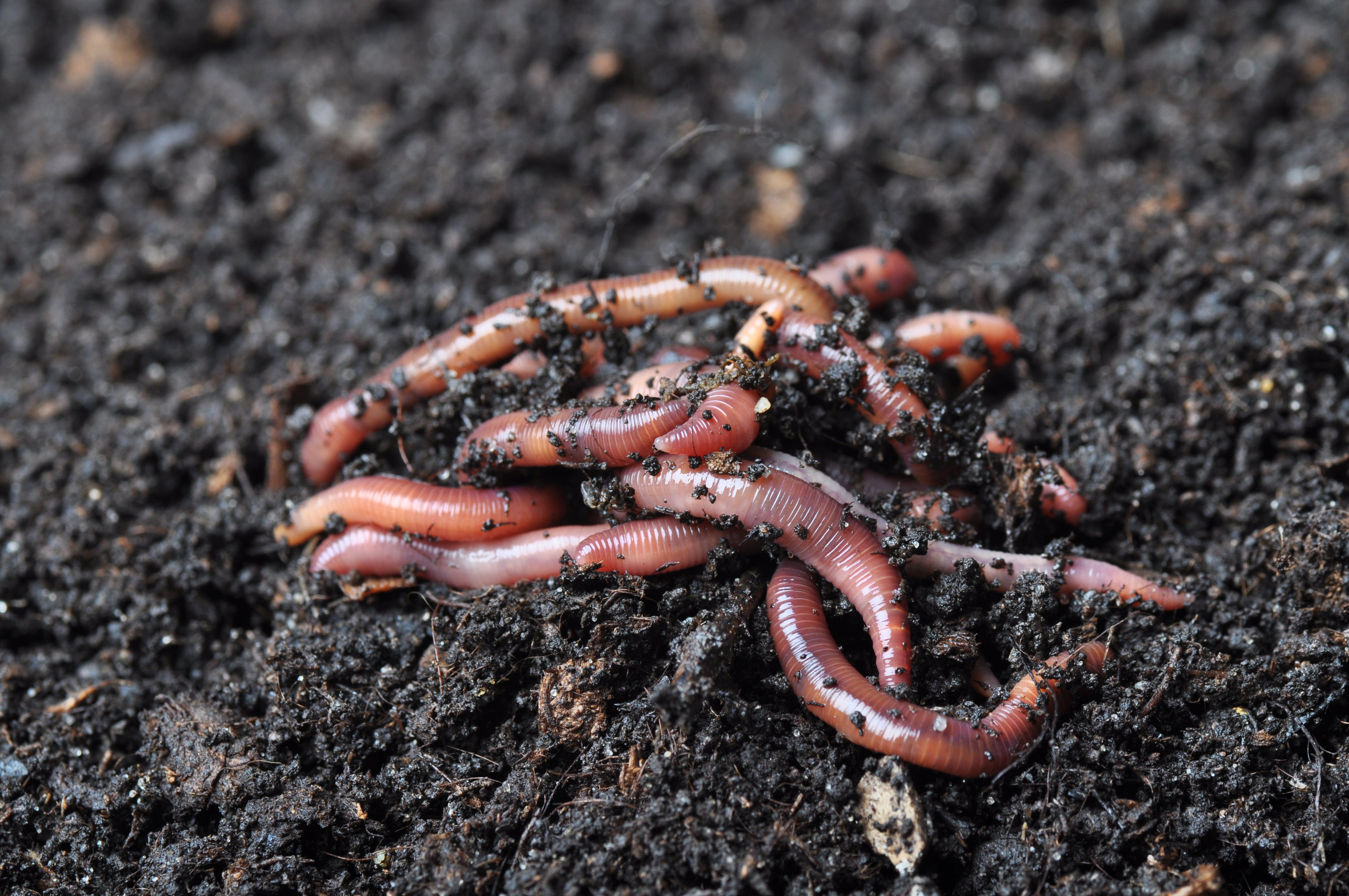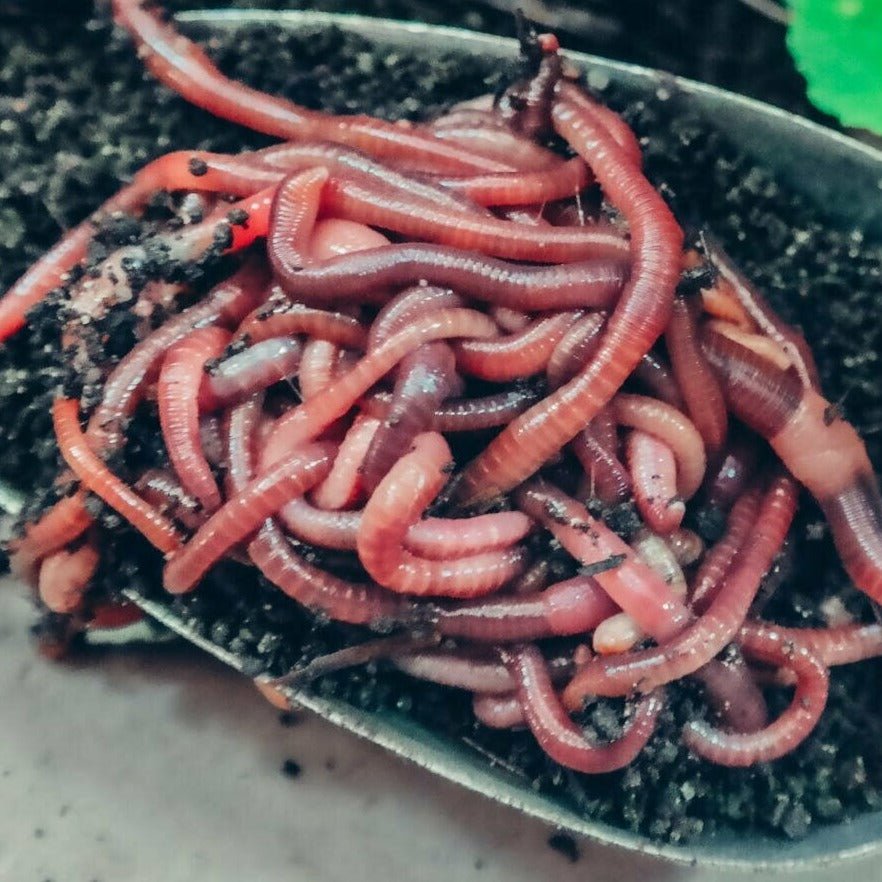Red Wiggler Worms - Effective Decomposers for Your Garden Compost Bin
Red Wiggler Worms - Effective Decomposers for Your Garden Compost Bin
Blog Article
Red Wiggler Worms Demystified: Unlocking the Keys of Vermiculture for Greener Living and Nutrient-Rich Dirt
In the world of sustainable practices for enriching dirt top quality and promoting eco-conscious living, red wiggler worms play a pivotal yet commonly forgotten function. These modest animals have the remarkable ability to change organic waste right into nutrient-rich castings that serve as a potent natural plant food. By diving into the globe of vermiculture, one can discover a myriad of benefits that expand far past typical composting techniques. Understanding the details of taking care of these worms, optimizing their atmosphere, and harnessing their spreadings can lead to a greener way of living and healthier dirt for plants to thrive.
The Duty of Red Wiggler Worms
Red Wiggler worms play a vital function in composting systems by successfully breaking down organic issue right into nutrient-rich castings. These starved eaters take in a variety of organic materials, such as cooking area scraps, backyard waste, and paper products. As they feed, the worms' gastrointestinal processes break down the organic matter into a fine, dark, and nutrient-dense product recognized as worm castings or vermicompost.
The spreadings produced by Red Wiggler worms are extremely useful for soil health and wellness and plant growth. They are abundant in crucial nutrients like nitrogen, phosphorus, and potassium, which are essential for supporting healthy plant advancement. In addition, worm castings include helpful germs and enzymes that aid boost dirt framework, rise water retention, and boost nutrient uptake by plants.
Advantages of Vermicomposting

It improves dirt structure, enhances dirt oygenation, and increases soil dampness retention. Vermicompost additionally enriches the soil with necessary nutrients like phosphorus, nitrogen, and potassium, advertising plant development and total dirt fertility.
Additionally, vermicomposting supports sustainable gardening methods by giving a chemical-free and all-natural alternative to synthetic fertilizers. Red Wiggler Worms. This ecologically friendly technique not just enhances the dirt yet additionally helps reduce reliance on damaging chemicals, promoting a greener and a lot more lasting method of horticulture
Establishing Up a Worm Container
When developing a worm container for vermicomposting, correct setup is important to make sure the success of the composting process. The primary step in establishing a worm bin is selecting a suitable container. This can be a plastic bin or wood box that supplies enough space for the worms to walk around and has correct drain openings to avoid waterlogging. Next, a bed linens product such as shredded paper, cardboard, or coconut coir ought to be contributed to the bin. This bedding provides a comfy atmosphere for the worms and assists maintain dampness degrees.
After including the bed linen, present the red wiggler worms to the bin. The worms need to then be provided with food scraps such as fruit and veggie peels, coffee grounds, and eggshells.
Frequently monitor the dampness levels and temperature level in the worm bin to guarantee optimal problems for the worms. With correct setup and maintenance, the worm bin will properly convert natural waste into nutrient-rich garden compost for your plants and yard.
Gathering Worm Castings
To efficiently gather nutrient-rich worm spreadings site web from your vermicomposting system, a systematic harvesting approach is important. When it comes time to collect the worm castings, there are a couple of key steps to comply with to ensure a successful process. First of all, quit including fresh food scraps to one side of the worm bin for a pair of weeks prior to collecting. This encourages the worms to migrate to the side with fresh bed linen and food, making it less complicated to dig the castings from the other side.

Troubleshooting Common Issues
Determining and addressing typical challenges that might occur throughout the vermicomposting process is critical for preserving a healthy and balanced and efficient worm container. Adding excess food scraps can lead to an accumulation of dampness and acidity in the worm container, potentially hurting the worms. Another problem is undesirable odors originating from the worm container.
Furthermore, if the worm populace is declining or the worms appear unhealthy, maybe as a result of environmental stress factors such as severe temperatures or pH degrees. Monitoring these aspects and making necessary modifications is necessary for the wellness of the worms. By check it out repairing these common problems promptly, vermicomposters can make sure a smooth and successful vermicomposting process while keeping a thriving worm population.

Final Thought
Finally, red wiggler worms play a crucial role in vermiculture by damaging down natural issue right into nutrient-rich dirt. The advantages of vermiculture include greener living and improved soil top quality. Establishing up a worm container is crucial for effective vermiculture, and collecting worm spreadings supplies useful compost for gardening. By understanding and fixing common issues, people can open the tricks of vermiculture for sustainable living and healthier dirt.
As they feed, the worms' digestive system procedures break down the organic matter right into a fine, dark, and nutrient-dense material recognized as worm spreadings or vermicompost.
The castings generated by Red Wiggler worms are highly advantageous for dirt health and wellness and plant growth. Including excess food scraps can lead to a buildup of dampness and acidity in the worm container, potentially damaging the worms.Furthermore, if the worm populace is declining or the worms show up undesirable, it can be due to environmental stress factors such as extreme temperature levels or pH levels. Establishing up a worm bin is necessary check that for successful vermiculture, and harvesting worm spreadings provides useful compost for gardening.
Report this page